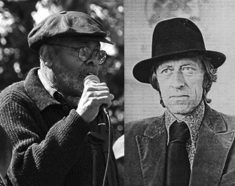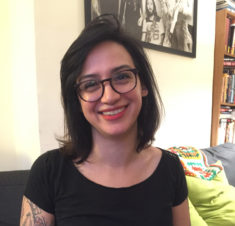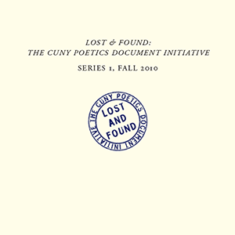Editor: Claudia Moreno Pisano
34 pages, softcover, saddle-stitch binding
Amiri Baraka & Edward Dorn: The Collected Letters presents the correspondence of twentieth-century North American poets Edward Dorn and Amiri Baraka (formerly LeRoi Jones) between the years 1959 and 1965. The major basis of their relationship, and these letters, is undoubtedly an artistic one, the early 1960s finding both poets just beginning to publish and becoming active, public figures. This correspondence becomes the primary ground for a wide range of discussions, from quotidian observations of being snowbound without enough heat or being overdressed on an overly warm spring day to the hashing out of experiences, fears, and anxieties directly related to the socio-political culture of the early 1960s: bar fights around race matters, an aggravated police presence around fears of agitation and protests. A look at the complete set of letters finds them formative and showing signs of what is to come later: by 1965, knowledge, beliefs, actions, friendships, and alliances had shifted drastically, setting the stage for a highly tumultuous late 1960s. The correspondence between Dorn and Baraka takes us from a time when the norms of cultural ideology held Americans squarely in a superficial postwar ease to the moments when the uncovering of darker truths became manifest and the veneer of consumer culture began to fall apart. Dorn and Baraka both understood the poem as an act of the intellect and knew that poetry is a public action that carries with it responsibility. With this sense of art as not only a valid but a necessary means of grappling with and understanding both the beautiful and the horrific in the world fueling each poet, the letters become both reflection and place of creation, the ground upon which to experiment.
Author Biographies:
EDWARD DORN(1929-1999) was born in the poverty-stricken Illinois of the Great Depression, forever marked by the circumstances and land from which he came. Intellectually hungry and always dissatisfied with the status quo, Dorn spent several years studying with Charles Olson, both in and out of Black Mountain. Dorn engaged in sharp, critical inquiry in an attempt to push into motion what he knew was a too-often complacent country. His frankness landed him the dubious honor of, in the words of fellow poet Tom Raworth, “a lonely position at the best of times… a persona non grata.” In the Summer 2004 special double issue of Chicago Review dedicated to Dorn, editor Erik Steinhoff understands that though “Dorn should need no introduction” given his location in the radical and powerful lineage of “the Black Mountaineers arrayed under and around Charles Olson’s decisive influence… it is also understandable that Dorn would need an introduction.” Deemed a “difficult” poet and man by many, Dorn’s work “functions as a department of disturbances, running athwart whatever linguistic, political, or cultural securities or sincerities we might hold.” Dorn spent his life writing, teaching, and editing as he traveled between England and North America; he would accept a position at the University of Colorado, Boulder in 1977 and remain there until the end of his life.
AMIRI BARAKA (1934-) is a poet, writer, dramatist, and activist. Rejecting his lower middle class black lifestyle and receiving a dishonorable discharge by the Air Force (the Error Farce, in his own words), by 1958 Jones had ventured to New York City, where he spent many years in Greenwich Village, an integral participant in the bohemian poetry, theater, and music scenes. Baraka would write in a wide range of artistic forms, including poetry, plays, essays, reviews, even liner notes for the jazz records coming out of the artistic ferment of the mid-twentieth century music world. Having seen several poems of Dorn’s in various small literary magazines, Baraka began writing to him with praises and a request for poems for his own magazine, Yugen. This was the first little magazine to include all the various groups that would come to comprise the New American Poetry; the Beats, the Black Mountain poets, and the San Francisco Renaissance poets, among others, were all featured. In 1965, after the death of Malcolm X, Baraka moved uptown to Harlem and founded the Black Arts Repertory Theatre, a key part of the Black Arts Movement. Baraka has since returned to Newark, continuing his works in the arts and as an activist.
Selected Archives:
- Lilly Library, University of Indiana, Bloomington, IN
- Charles E. Young Research Library, University of California, Los Angeles, CA


